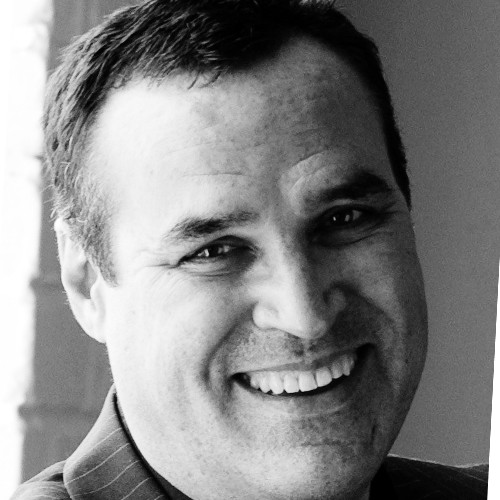Inform Your Client: Don’t Wait to Apply for Citizenship Until It’s Too Late
Reasonable Doubt
With David Lesperance
A contrarian expert on contingency plans for the wealthy delivers uncomfortable truths.
Different trigger events can derail your client’s future citizenship by investment plans. It’s your job to shake them out of their false sense of security.
Throughout history, those who immigrated often did so because they began to feel unsettled about their eroding future in their current location. Sometimes the issues were obvious such as the outbreak of war, drought or famine. Other times, the signals of erosion were more subtle; societal breakdown, political tension, economic mismanagement.
Though the sensation was only a low-grade simmer, continued vigilance eventually revealed the eroding future was there, only it had arrived in a more gradual manner. This same concern over erosion of the future holds true today, except the speed of “triggering events” is unmistakably accelerated.
What are “triggering events”?
Triggering events are often negative. If they occur, financial and personal consequences can be significant and even life-altering. Consequently, as the possibility of a triggering event increases, attentive and pro-active individuals will seek out alternatives. If that possibility turns to a probability or even a reality, there may even be enough impetus for the individual to overcome the ‘life inertia’ necessary to actually relocate.
In my experience, pro-active HNWI clients deal with two different types of triggering events:
- Increased risk but no certainty as to timing; or
- Increased risk with absolute certainty of timing
The first type of triggering event is the result of an increasingly volatile political and societal situation. This volatility will severely impact clients and their families should certain events ever come to pass. Current examples include HK and Chinese businesspeople, Saudi and other GCC nationals, and Mexican, Brazilian and Israeli businesspeople.
The key mistake that I observe with clients facing this type of triggering event is complacency. This occurs when the event date is unknown and unpredictable. It is similar to people who never get around to doing their will. Planning for this triggering event is important but not urgent. Unfortunately, when the negative event does occur, those who have not planned ahead experience a catastrophe that could easily have been avoided.
The second type of triggering event has a specific deadline such as an election. The two most obvious current examples are the United Kingdom and the United States. Both have pending elections with one or more parties espousing populist ‘Tax the Rich’ policies. These would substantially increase the family’s tax burden.
See also: Wealth Planning and CBI Are Separate Worlds, But This is About to Change
Failing to plan is planning to fail
The first common mistake that I see with these clients is that many do not accurately determine the cost of failure should certain politicians be elected and bring in their tax policies.
Rather than get hard numbers from their accountants and other advisors, they mentally calculate the impact. This often means that they grossly underestimate it.
The second mistake they make is to under-estimate the possibility that those same politicians may come into power. Indeed, their “they’ll never win” attitude may very well come back to haunt them. You do not buy fire insurance because you expect your house will catch on fire. No, you recognize that a fire is a possibility and that without insurance the impact would be financially devastating.
See also: 7 Ways HNWIs Sabotage Their Own Backup Plans – Part I
The third mistake I see is an under-appreciation of the time necessary to devise and construct a proper backup plan. A comprehensive Plan B includes a new residence and possibly citizenship, lifestyle planning, and the necessary tax and estate planning in the old and new countries.
Another risk that many overlook is that events that aren’t even geopolitical in nature but, rather, personal, can affect your ability to even participate in a citizenship by investment program. Many CIPs exclude applicants that have previously been denied a visa to certain areas. Sure, you’ve always been granted that Schengen visa when you asked for it in the past, so you don’t see a need for a new passport with fewer visa-restrictions.
But what if, one day in the future, when you’re filing your visa application in the same way you always did, you forget to mention some innocuous fact in your application and you get a denial? Suddenly, not only can you not travel to Schengen on your old passport anymore; you can’t even get another one.
Getting another citizenship takes time
Lack of planning is especially apparent where the client suspects that they have a claim to a second citizenship through lineage. I have lost count of the number of times that clients have told me they are entitled to an Irish or Italian passport “any time they want it”.
They mistakenly assume there is some type of “1-800-I-AM-IRISH” hotline that they can call to order their new passport with instant delivery. When I inform them that, while they may have a valid claim, the time required to put together the documentation and process the application can easily take up to 12 months or more, they are astounded. Even laying claim to Israeli citizenship through Aliyah (“The Law of Return”) can take 6 to 8 months.
In many cases, citizenship and residence by investment can take similar lengths of time. This is especially true when the purchase of property is involved.
You snooze, you lose (a big chunk of your assets)
Clearly, it is paramount that those seeking a proper backup plan start early as there are several complex steps to the process. First, it is critical that they take a close look at their goals and fears. This will ensure that the path they select will lead them and their families to the right destination.
See also: When Citizenship Becomes a Matter of Survival, CIPs Save Lives
Second, relying on commissioned sales-people to help devise their plans – or even attempting to do it themselves – is a recipe for disaster. Properly protecting family wealth and well-being means engaging professional and experienced advisors. They should be qualified to look at related matters such as taxation, maintaining status, the privacy of second citizenships, etc.
With the right assistance, the client understands their fully loaded cost of failure and can then put together a proper plan that can be executed in a timely manner.
In closing, please remember these two things. A goal without a plan is just a wish, and taking the time to do it right is always better – and a lot cheaper and less stressful – than doing it twice.
David Lesperance is a global leader of international tax and immigration advisors.
A published author in the field, his personal interest in these areas of law grew from his experience working as Canadian immigration and customs officer while studying law. Since being called to the bar in 1990, he has established his expertise with major law firms, his own law firm and as a private consultant. David has successfully advised scores of high and ultra high net-worth individuals and their families, many of whom continue to seek his counsel today. In addition he has provided pro bono advice to many governments on how to improve their Citizenship by Investment, Residence by Investment or Golden Visa type programs to better meet the needs of his global clients. David is supported by a team of professionals, some of whom have worked with him since the early 1990s.




